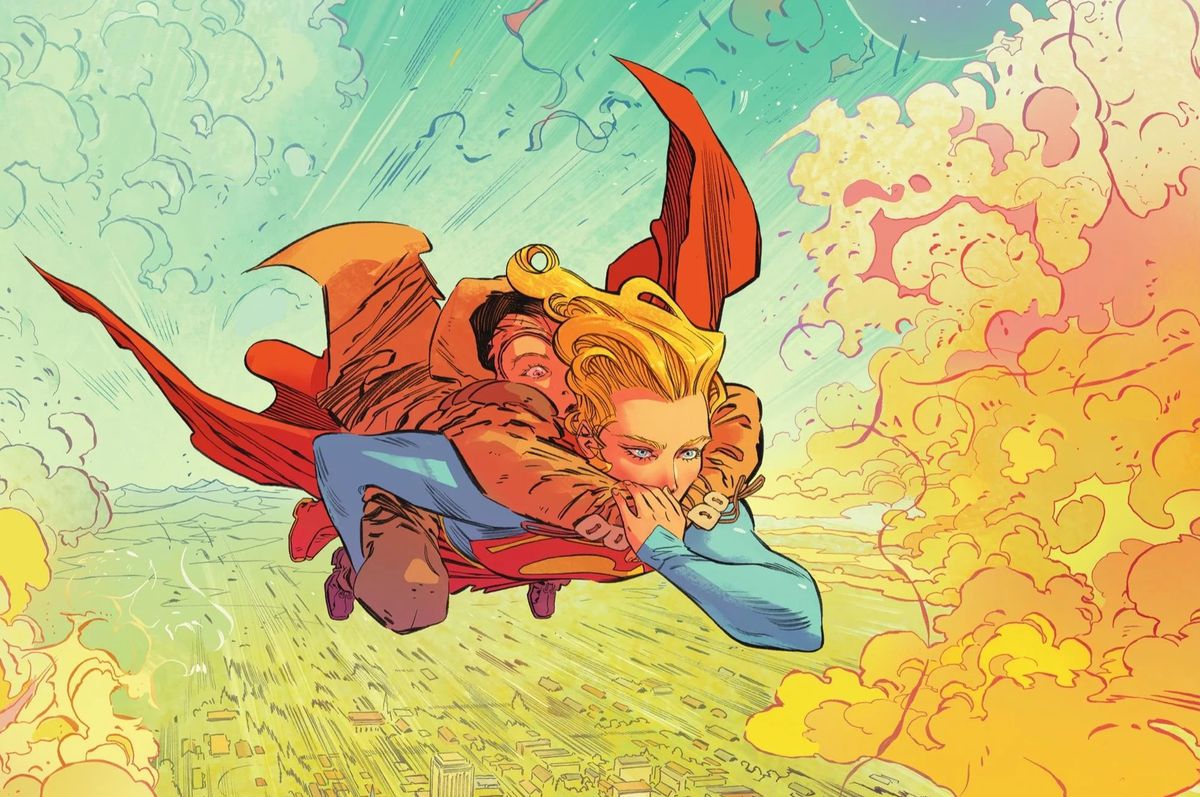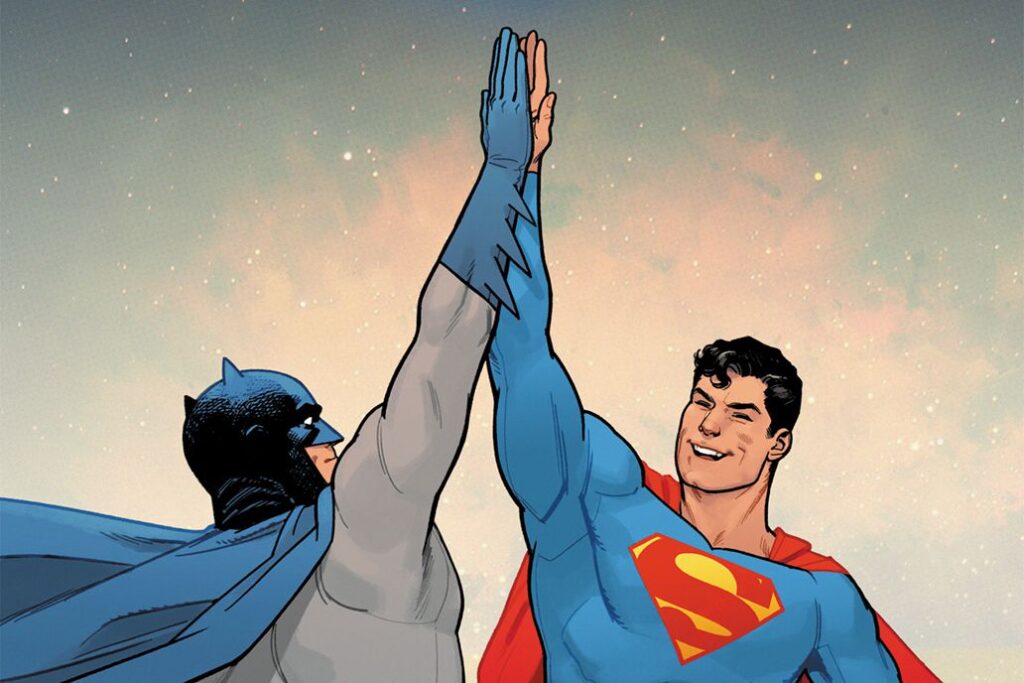We’ve been here before: A film studio, eyeing Marvel Studios’ ridiculous track record of success, announces a similarly ambitious plan with the aim of going from zero to The Avengers and beyond in the next five to 10 years. This is how the Dark Universe was born. It was the impetus behind a Bloodshot movie that was once supposed to lead to more, and a similarly DOA Hasbro universe that thus far has only led to Snake Eyes. This week, a new milestone was hit, as Marvel’s Distinguished Competition became the first company to boldly outline a cinematic universe twice.
Three months after The Suicide Squad and Guardians of the Galaxy writer-director James Gunn was announced as co-CEO of DC Studios alongside producer Peter Safran, the pair have revealed the first stage of their plan for the next 10 years of DC movies. It’s the second time DC has done this, following the slow-motion collapse of its initial plans in 2014, now colloquially known as the Snyderverse. This song and dance is getting old, and preemptive exhaustion to Gunn calling the first of his plan for DC movies and TV “Chapter 1: Gods and Monsters” is perfectly reasonable. It’s the worst way to introduce an audience to a “universe,” yet companies keep doing it, because they’ve cultivated an expectation among fans that they will be treated like investors. And if they are expected to show up for a decade’s worth of movies? Perhaps they are.
Push past the corporate entitlement that can come with a list of superhero movies, and there’s some really promising stuff about the direction this week’s announcements imply. Regardless of how one feels about Gunn’s track record, he is something the mega-franchise era of superhero cinema hasn’t really had before: a genuine creative in the driver’s seat, doing a lot of messaging about how telling stories matters first. That could be bullshit — this whole thing might not pan out, falling apart like it fell apart the first time — but there is a bit of care here that we haven’t seen before. Gunn noted that only one film, Superman: Legacy, has a release date, and everything else will come when it’s ready.
Image: Evan “Doc” Shaner/DC Comics
A Superman film as Gunn’s opening salvo is a ballsy move. It’s historically the top-tier DC comic book superhero Hollywood has had the most trouble with, and hinging a massive plan on suddenly getting it right comes across as a pretty bananas idea. For a Superman movie to succeed right now it has to be different, and Gunn seems to realize this — “You can’t be telling the same ‘good guy, bad guy, giant thing in the sky, good guys win’ story again,” he told press present at the slate’s announcement.
If Gunn’s stated allergy to formula bears out in the work, sticking the landing with a distinctive Superman film could give the later DC Studios films license to be even bigger departures as they go along. And the pitches shown off are different, if only in how they appear to do something the MCU can’t really do anymore: adapt comic books.
Gunn’s adaptation choices all hinge on either specific story arcs or characters with definitive touch points and little variance in their history. The pitch for the DCU Batman film, The Brave and the Bold, cites Grant Morrison’s tenure on Batman comics and the Robin they introduced to the canon. Supergirl: Woman of Tomorrow is a straight lift of the miniseries by Tom King and Bilquis Evely (also our pick for one of the best comics of last year). The Authority, an acerbic take-no-prisoners superteam, have largely endured in more or less the same form they were introduced in the landmark comic by Warren Ellis and Bryan Hitch. And Swamp Thing’s deep roots in Southern Gothic and occult horror have been a fixture since Alan Moore et al. reinvented a once basic monster in a now legendary lynchpin of DC’s mature readers heyday of the late ’80s to mid-’90s.

Image: Tom King, Bilquis Evely/DC Comics
These are all selections that give Gunn and his brain trust ample room to put their money where their mouths are, as an array of idiosyncratic comics given to equally distinctive filmmakers could genuinely lead to a DC film universe that feels truly varied in tone and genre. This is something that the MCU is simply too big to do now, on every level.
At this point, Marvel Studios movies have their own dense continuity to honor, and an established house style and cosmology that all new installments must visually adhere to. In this stage, comics are stripped for parts as they prop up the MCU, and it would be nice for its competitor to distinguish itself by doing the inverse — making films that prop up the grand variety of DC’s much longer and more varied history.
But what’s best might be something Gunn didn’t announce: an Avengers-style crossover. Perhaps there’s one in the bag that isn’t being shared yet, as Gunn did say this was only part of the new DCU plan. Yet this omission, alongside the stated focus on stories and scripts, strongly suggests that the next DCU is also a more stand-alone one, more interconnected via consistent characters coming and going and less so by plot. Because that’s truly the best way a DCU can differentiate from Marvel: by offering an array of varied films with familiar faces that audiences can drop in and out of without missing much. No sagas or phases — just a good time.

